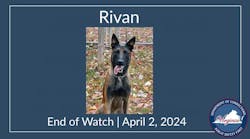The federal government asked a judge on Friday to suspend a ruling that bars enforcement of an anti-terrorism law that she called unconstitutional in its provisions for indefinite military detention.
The law allows detention of people suspected of "substantially" or "directly" providing support to groups such as al-Qaida or the Taliban. Some journalists, scholars and political activists sued over the law, saying they feared they could end up being held for exercising First Amendment rights.
Government lawyers called such concerns unfounded, but U.S. District Judge Katherine Forrest said in her ruling Wednesday that she found them legitimate.
In court papers filed Friday, the U.S. attorney's office in Manhattan asked for a stay of the decision while the government appeals.
The law concerns "the president's exercise of his commander-in-chief power in the context of the United States' current combat operations against al-Qaida, the Taliban and their associated forces," Assistant U.S. Attorneys Benjamin Torrance and Christopher Harwood wrote. "The court's injunction against the exercise of those war powers ... should be stayed."
One of the plaintiffs' lawyers, Bruce Afran, said the judge's ruling should stand. He noted that enforcement has been on hold since May, when the judge issued an earlier decision.
"There's no basis for the government to get permission now to use the law," Afran said, saying he was concerned that the government might plan to start making immediate use of the law.
A spokeswoman for the U.S. attorney's office declined to comment.
The judge, in her ruling this week, said she realized the gravity of the government's anti-terrorism work and said courts should afford the administration considerable deference on national security.
But she called the law that's under scrutiny "unconstitutionally overbroad," questioning whether it could be applied to a news article if it were perceived as favorable to the Taliban.
"Where is the line between what the government would consider `journalistic reporting' and `propaganda?'" the judge wrote. "Who will make such determinations?"
Pulitzer Prize-winning journalist Christopher Hedges, who has interviewed al-Qaida members and reported on 17 groups named on a Department of State list of known terrorist organizations, testified at a March hearing that the law was so vague that it was impossible to know what might be illegal.
The judge noted that the government can use another law that permits indefinite detention of people connected to the Sept. 11 terrorist attacks or others picked up on the field of battle.
___
Follow Jennifer Peltz at http://twitter.com/jennpeltz
Copyright 2008 The Associated Press. All rights reserved. This material may not be published, broadcast, rewritten or redistributed.



